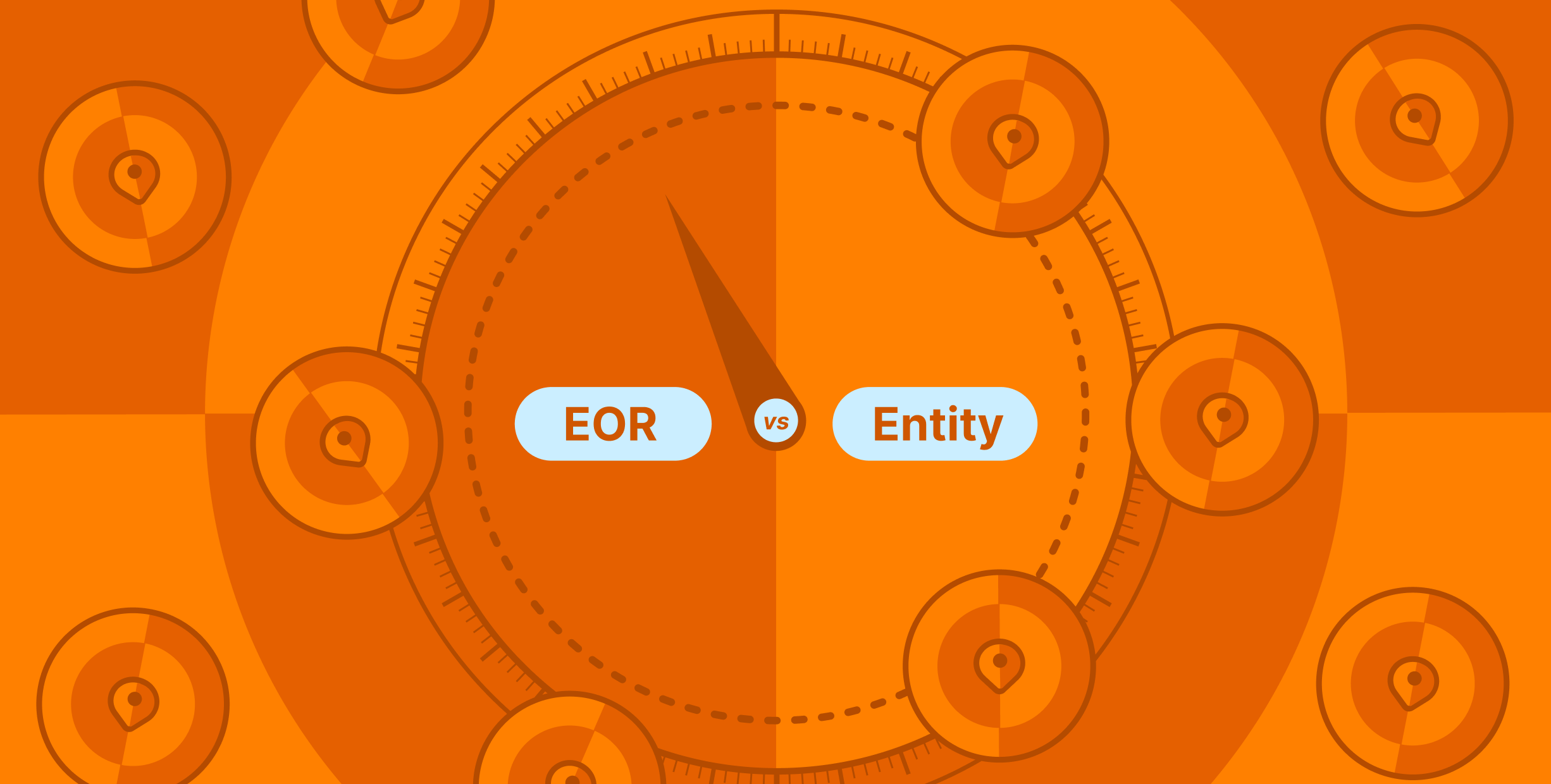EOR vs. Entity: What’s the Right Move for Global Expansion?
Learn the pros and cons of working with an employer of record (EOR) vs. setting up your own local entity, and when each option may be better suited to your company's stage of growth.

Summary: This article explains the difference between using an employer of record (EOR) — a third party that hires and pays workers in another country for you, without your having to set up a local entity — and setting up your own local entity. EORs win for fast hiring, lower upfront risk, built-in compliance, and “test the market” agility. Entities make sense when you’re scaling a large team, need tight control over tax strategy, want a local brand footprint, or require deep customization — often becoming cheaper beyond ~30 employees. The guide ends with a simple decision framework and notes that Plane supports both paths (and helps companies transition when the time is right).Expanding into a new country opens the door to new markets, talent pools, and growth — but it also comes with serious decisions. Chief among them: Do you establish a legal entity or work with an employer of record (EOR)?Both options get you to the same place — hiring and operating in a new market — but the route, cost, and complexity are very different. This guide walks through the pros and cons of each path, and when one may be better suited to your stage of growth.
Quick definitions
Before we dive in, let’s clear up a common point of confusion:- Employer of Record (EOR): A third-party provider that legally employs workers on your behalf in a given country. The EOR handles payroll, taxes, benefits, compliance, and employment contracts. You manage the team’s day-to-day work.
- Professional Employer Organization (PEO): A co-employment model where you and the PEO share employer responsibilities. PEOs typically require you to already have a local entity. EORs, in contrast, can be used without an entity in place.
Why choose an EOR?
1. Speed to hire
Setting up an entity can take months. With the right EOR partner, companies often hire and onboard talent in just a few weeks. This is a huge advantage when speed to market matters — whether you’re building a customer support team or launching local operations ahead of competitors.2. Simpler, lower-risk expansion
EORs turn expansion from a fixed investment into a variable cost. Instead of dealing with legal filings, bank accounts, tax IDs, and HR infrastructure, you pay per employee — making it easier to scale up or down as business needs shift.3. Built-in compliance
Some companies just don't want to deal with the complexity of managing an entity. Labor laws, benefits, and tax obligations vary significantly by country — and getting them wrong can be costly. EORs specialize in local compliance, minimizing legal exposure while delivering a smooth onboarding experience for your team.4. Test before you commit
An EOR is an ideal solution for companies exploring new markets. You can hire a small team, validate demand, and determine fit before going all in on setting up a subsidiary.Why choose to set up a local entity?
While an EOR makes international hiring faster and more flexible, forming your own entity can be the better long-term play — especially if you’re betting big on a particular market.1. Long-term commitment
If you’re planning to scale a large team, invest heavily in the region, or stay for the long haul, a local entity gives you full control and direct ownership of everything — from payroll systems to local branding. Cost is also a key factor; the more people you plan to hire in a given country, the more it makes sense to establish your own entity. While using an EOR at $499 per person per month may be more cost-effective for a small team, once you reach 30 employees, the economics often favor setting up a local entity.2. IP and tax considerations
Some companies need tight control over intellectual property, profit repatriation, and tax structuring. While many modern EORs (like Plane) offer direct IP transfer options to ensure you own your work product, certain tax structures or compliance requirements may still necessitate your own legal presence. Setting up a local entity may also unlock access to tax credits or government programs. For example, Canada offers generous R&D credits, up to $250K, which can make it especially appealing to establish an entity if you’re building an engineering team there.More on IP:3. Local brand and presence
Having a legal entity can help reinforce your long-term presence and commitment in the market. It can also be necessary for specific business operations like government contracts, licenses, or opening local bank accounts. If you’re planning to sell to customers in a specific country, having a local presence can make the process significantly easier both from a trust and regulatory standpoint.4. Customization and control
With your own entity, you aren’t operating within the boundaries of a third-party EOR’s systems. You can fully customize employment contracts, benefits packages, and internal processes — something that may matter more as your team grows.So, which should you choose?
There’s no universal right answer. But here’s a rough framework:
Final thoughts
EORs and entities both play critical roles in global expansion — just at different phases and for different priorities.If you’re testing new markets, need to move fast, or want to stay lean, an EOR helps you get started without the burden of bureaucracy. If you’re building a permanent presence or need full autonomy, a local entity may be the better bet.At Plane, we work with companies doing both — and help them transition from one to the other. If you’re unsure which path is right for your business, we’re happy to walk through the trade-offs with you.Related articles
From startups to beyond, US companies of all sizes use Plane for global payroll, benefits and compliance.
Why We Built Self-Driving Payroll at Plane
In order to meet the evolving needs of global companies, payroll must be able to run itself, so your team can spend time on growing your company.
Why Your Contractor Payment Experience is a Hiring Advantage
How their payment experience can determine whether a contractor recommends you to their peers or declines your next offer.
How Plane Handles Multi-Currency Payments at Scale
Moving money across borders is one of the hardest operational challenges for companies today. But it doesn’t have to be. Here’s how Plane simplifies the process.
